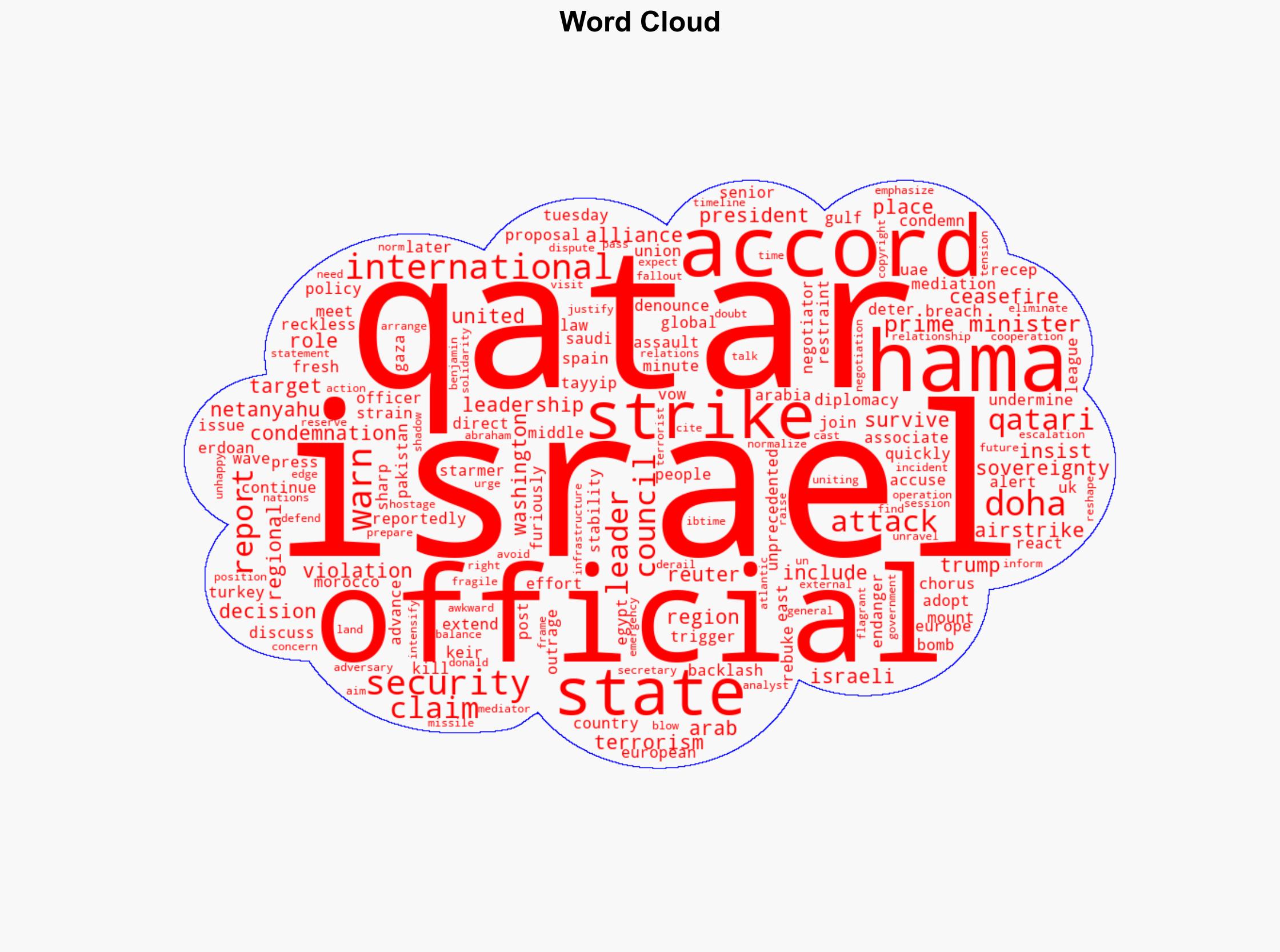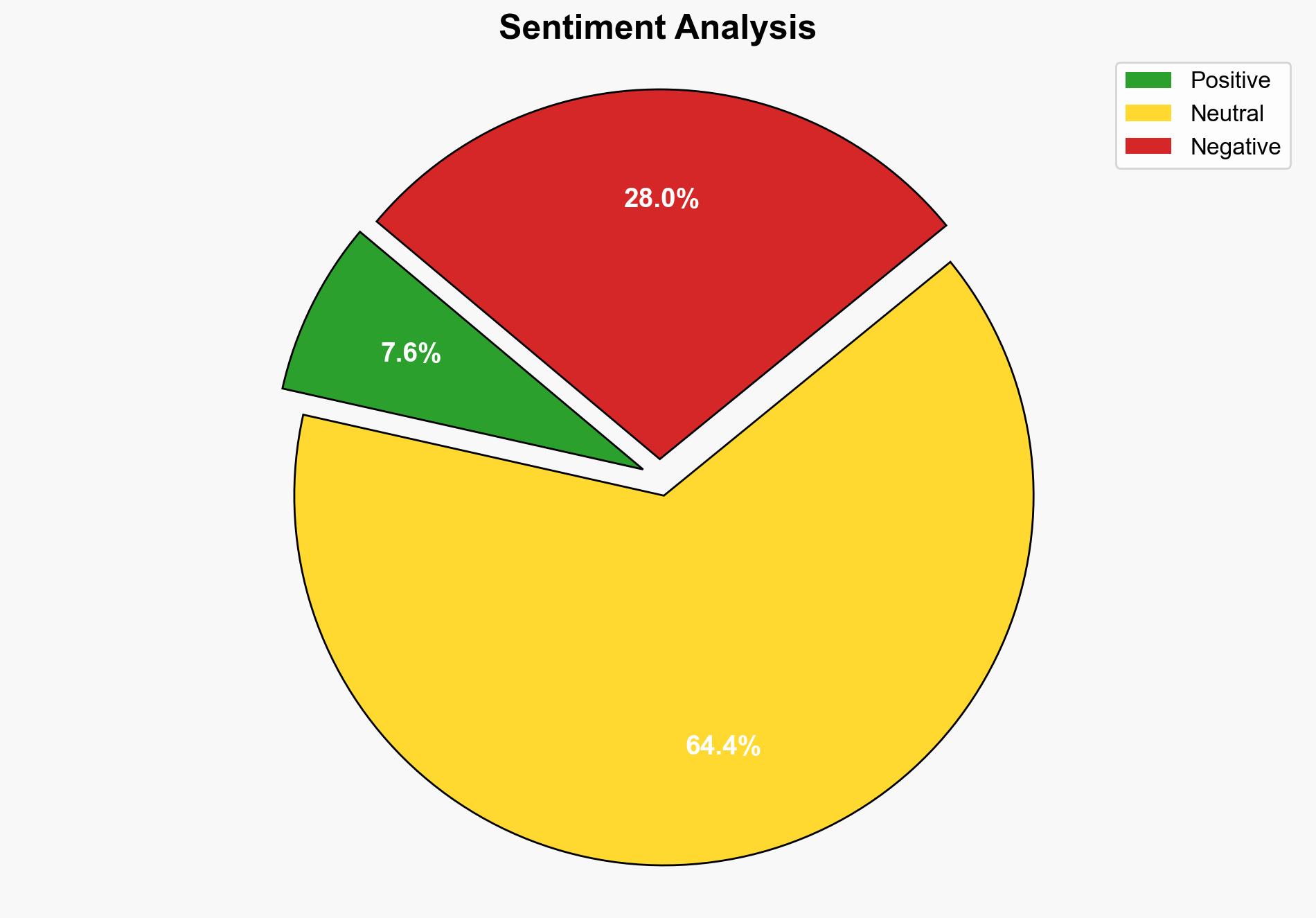International Outrage Mounts After Israel’s Airstrike In Qatar – International Business Times
Published on: 2025-09-10
Intelligence Report: International Outrage Mounts After Israel’s Airstrike In Qatar – International Business Times
1. BLUF (Bottom Line Up Front)
The most supported hypothesis is that Israel’s airstrike in Qatar was primarily intended to disrupt Hamas leadership activities perceived as threats to Israeli security. This action, however, risks significant diplomatic fallout and regional instability. Confidence level: Moderate. Recommended action: Engage in diplomatic efforts to de-escalate tensions and reinforce communication channels between involved parties to prevent further escalation.
2. Competing Hypotheses
1. **Hypothesis A**: Israel conducted the airstrike to eliminate a specific threat posed by Hamas leadership, prioritizing immediate security concerns over diplomatic repercussions.
– **Supporting Evidence**: Israel’s justification of the strike as a necessary action against “terrorist infrastructure” and the survival of the targeted Hamas leader.
– **Contradictory Evidence**: The widespread international condemnation and claims of insufficient warning to Qatar.
2. **Hypothesis B**: The airstrike was a strategic move by Israel to undermine Qatar’s role as a mediator in regional conflicts, thereby reshaping alliances and power dynamics in the Middle East.
– **Supporting Evidence**: The strike’s timing during ceasefire discussions and the potential to derail Qatar’s mediation efforts.
– **Contradictory Evidence**: Israel’s stated focus on security threats rather than diplomatic maneuvers.
3. Key Assumptions and Red Flags
– **Assumptions**:
– Hypothesis A assumes Israel had credible intelligence on an imminent threat.
– Hypothesis B assumes Israel’s strategic interests include diminishing Qatar’s diplomatic influence.
– **Red Flags**:
– Lack of clear evidence supporting the immediacy of the threat.
– Discrepancies in the timeline of warnings given to Qatar.
– **Blind Spots**:
– Potential internal Israeli political pressures influencing the decision.
– The full extent of Qatar’s diplomatic engagements with Hamas.
4. Implications and Strategic Risks
– **Geopolitical Risks**: Heightened tensions could lead to a realignment of regional alliances, potentially isolating Israel diplomatically.
– **Economic Risks**: Disruption of trade and energy routes if tensions escalate.
– **Psychological Risks**: Increased anti-Israel sentiment could fuel radicalization and recruitment by extremist groups.
– **Escalation Scenarios**: Potential retaliatory actions by Hamas or its allies, leading to broader regional conflict.
5. Recommendations and Outlook
- **Mitigation Actions**: Initiate back-channel communications to clarify intentions and reduce misunderstandings. Encourage third-party mediation to facilitate dialogue.
- **Scenario Projections**:
– **Best Case**: Diplomatic efforts succeed in de-escalating tensions, and ceasefire talks resume with Qatar’s mediation.
– **Worst Case**: Escalation leads to broader regional conflict involving multiple state and non-state actors.
– **Most Likely**: Continued diplomatic fallout with intermittent skirmishes, but no full-scale conflict.
6. Key Individuals and Entities
– Benjamin Netanyahu
– Donald Trump
– Recep Tayyip Erdoğan
– Keir Starmer
– Hamas leadership
7. Thematic Tags
national security threats, cybersecurity, counter-terrorism, regional focus





